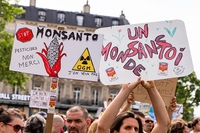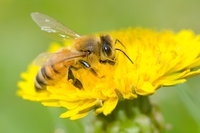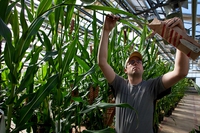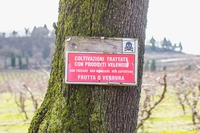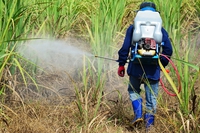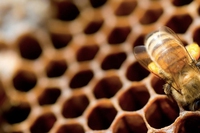
United States. Millions of bees killed by insecticide used against mosquitoes
This happened in South Carolina, where millions of bees have died due to massive use of an insecticide used against mosquitoes.
This happened in South Carolina, where millions of bees have died due to massive use of an insecticide used against mosquitoes.
L’autore del reportage El costo humano de los agrotóxicos, Pablo Ernesto Piovano, racconta com’è nata l’idea di girare l’Argentina in lungo e in largo alla scoperta degli effetti dei pesticidi sulle persone.
Senza una decisione da parte dei governi sul glifosato, la Commissione europea ha prolungato l’autorizzazione all’uso dell’erbicida per altri 18 mesi.
La moria delle api è anche un problema finanziario che potrebbe colpire a cascata i profitti di innumerevoli industrie e, quindi, i loro investitori.
In Medellín, Colombia, Agroarte teaches young people to take back lands wrecked by decades of violence using agriculture and hip hop music.
“Bayer recently met with executives of Monsanto to privately discuss a negotiated acquisition”. Bayer’s statement has upset an entire industry, if not the entire European continent. Europe is faced with particular pressures as two core issues could determine what we’re going to cultivate and eat in the near future: the renewal of the license of the
The Transatlantic Trade and Investment Partnership (TTIP) is a free trade agreement between the United States (US) and European Union (EU). The two countries have been negotiating – mostly in secret – since 2013, after more than a decade of preliminary talks. The treaty aims to create a common market to facilitate economic relations between
A photographer decided to dig into how, where and why the weed killer glyphosate is used in Italy. This is after he saw Ernesto Piovano’s photo feature, El Costo Humano de los Agrotoxicos (the Human Cost of Agrotoxins), which shows the health conditions of Argentinians who live and work in close contact with glyphosate. Piovano’s
Glyphosate is likely to be licensed for another 9 years. The authorisation period initially suggested was 15 years, but the European Parliament recently asked for 7. So this is the compromise found by the European Commission on the new authorisation – the existing one will expire in June – for the use of glyphosate in 28
The government decided to make Sikkim a certified organic state thirteen years ago. Around 75,000 hectares of agricultural land were gradually converted. Organic practices and principles were applied according to the National Programme for Organic Production’s guidelines, says Sikkim Organic Mission’s executive director, Doctor Anbalagan. Foundational measures Although the state has traditionally not been an

